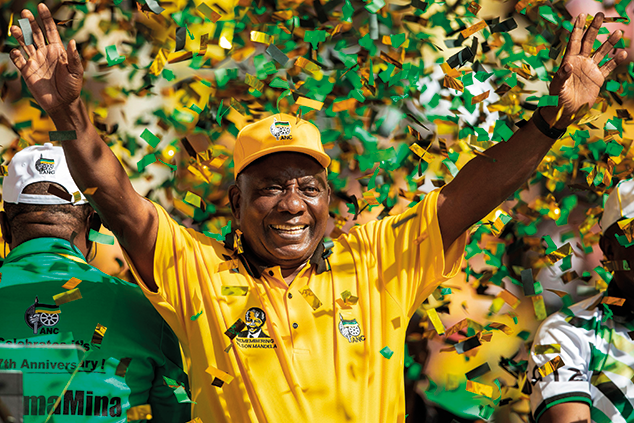
South Africa’s ruling party triumphed in last week’s general election despite receiving one of its lowest vote shares since the end of apartheid in 1994. Once a darling of emerging-market investors, South Africa became mired in endless corruption scandals during President Jacob Zuma’s time in power from 2009 to 2018.
He has bequeathed his business-friendly successor Cyril Ramaphosa a struggling economy that cannot even keep the lights on after years of mismanagement at state power firm Eskom. Growth has averaged a mere 1.5% over the past four years, far too low to bring down unemployment of roughly 27%.
The near-term outlook is not auspicious, either. Razia Khan of Standard Chartered expects GDP to grow by just 1.6% this year and thinks credit-rating agency Moody’s will take a more negative stance on the country’s debt, jeopardising Pretoria’s last remaining investment-grade rating.
Bulging in-tray
The real fight for Ramaphosa begins now, says Gabriele Steinhauser in The Wall Street Journal. The president wants to take his country back into the top 50 of the World Bank’s Ease of Doing Business Index – from 82 at present – and lift annual GDP growth to 3%.
To do that he will need to take immediate action to break-up “effectively bankrupt” Eskom and other ailing state-owned businesses. “Getting tough on corruption” and “over-mighty unions” are other priorities, adds Cropley.
This poll is more encouraging than it first seems, says Peter Bruce in The Times. The fact that South Africa has not opted for the extremes after the “degradations of the Zuma years” reveals that this is an “exceptionally conservative society”. In policy terms both the ANC and the main opposition Democratic Alliance now occupy the centre-ground.
The composition of Ramaphosa’s cabinet will be the key early sign to watch, says The Economist. South Africa has 30 cabinet ministers, the result of a system where the president hands out “plum jobs” to “incompetent comrades”. It will be very encouraging if Ramaphosa announces a slimmed-down executive and removes the last of the Zuma loyalists.
Emerging opportunity
Ramaphosa faces “daunting challenges”, but investors would be unwise to overdo the gloom, David Aserkoff of JPMorgan told Barron’s Craig Mellow. The country boasts “companies that are extraordinarily well managed and transparent by emerging-market standards”.
Even a modest uptick in growth from 1% to 2% – achievable with minor reforms such as easing visa restrictions on skilled workers and tourists – could drive “decent earnings growth”, while previous crises have left companies resilient and attractively priced.